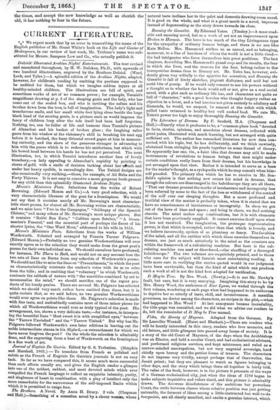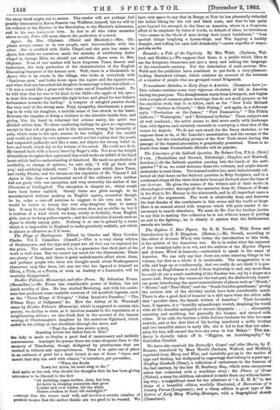Fides, the Beauty of Mayence. Adapted from the German. By
Sir Lascelles Wraxall. (Hurst and Blackett.)—There are readers who.
will be keenly interested in this story, readers who love memoirs, and
old letters, and little glimpses into passed-away forms of society. It is a story of the old Court of Mayence, of the days when the Archbishop
was an Elector, and held a secular Court, and had ecclesiastical advisers,
and performed religions services, and kept mistresses, and ruled as a narrow-minded unscrupulous, but not very ungenial sovereign, hard
chiefly upon heresy and the pottier forms of treason. The characters do not impress very vividly, except perhaps that of Garzweiler, the Jesuit priest ; but they are pleasant to watch as figures belonging to other days, and the story which brings them all together is fairly told.
The value of the book, however, is in the picture it presents of the ways of a German ecclesiastical city, just when the ideas of 1789 began to make subjects inquisitive and rulers timid, and this picture is admirably
drawn. The decorous dissoluteness of the ambitious but powerless Court, the strife between classes whose relative position was just getting untenable, the ferment of ideas among a little-instructed but well-to-do bourgeoisie, are all clearly manifest, and excite a genuine interest, which. the story itself might fail to secure. The reader will not perhaps feel greatly interested in Baron Francis von Wallbrun himself, but he will in his relation to the Elector, to the Revolution, to the Elector's mistresses, and to his own bourgeoisie love. In fact to all who value memoirs above novels, Fides will seem almost the perfection of a novel.



































 Previous page
Previous page